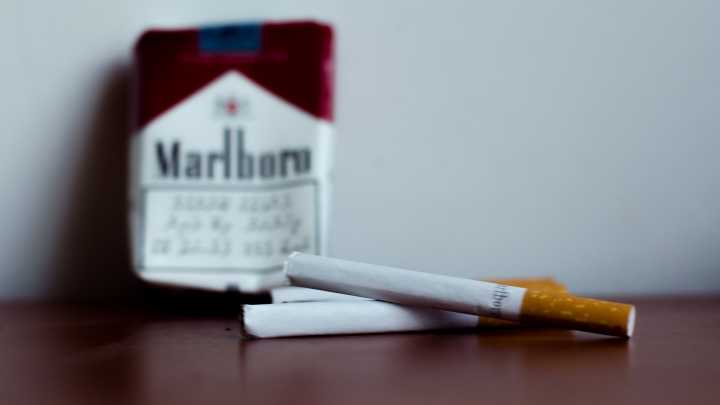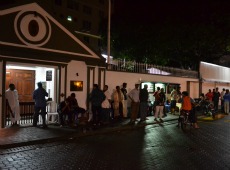Hundreds of people queued up to buy cigarettes before import duties were hiked on a range of goods today.
Block-long queues formed outside tobacco shops The Root and OCC last night, with smokers in what OCC managing director Mohamed Mumthaz described as a “state of panic”.
From today, import duty on tobacco is 200 percent (up from 150 percent) . Some shops have already raised prices from MVR38 (US $2.47) to MVR47 ($3.05) a pack.
Mumthaz believes the public is afraid that big businesses will take advantage of the hike in import duties and hoard cigarettes in order to reduce the supply in the market, so that they can sell at an inflated price.
OCC has resorted to rationing cigarette sales, Mumthaz said. The Root is also rationing, selling only one carton each to individuals and two to retailers.
Some 42 per cent of Maldivians smoke, according to World Bank data.
Meanwhile, a 10 percent duty has also been introduced on petroleum products. About 30 percent of the Maldives’ GDP is spent on importing fossil fuels.
In 2012, US$486 million was spent on oil imports, and the figure is estimated to rise to US$ 700 million by 2020.
Among other items, custom duties for luxury cosmetics and perfume have increased from zero to 20 percent.
Duties on liquor and pork were raised to 50 percent, while duty will be doubled to 200 percent on land vehicles such as cars, jeeps, and vans.
The government previously had plans to raise import duties on staple foods like rice, flour and sugar, but it reversed the decision after criticism from the public.
Retail shop owner Ali Jaleel said that his shop has not increased any prices, but estimates that prices will go up with the next shipment of goods.
“Rising prices is inevitable but necessary for the government to keep on going like this. I do not think it is a problem,” he said.
Parliament approved the import duty hikes in December 2014 as part of revenue-raising measures proposed with the 2015 state budget. The government anticipated MVR533 million (US$34.5 million) in additional income from import duties.
Along with raising import duties, the government has decided to implement a new “green tax”, and estimates that it will receive US$ 100 million as acquisition fees for the newly developed Special Economic Zones by August this year.
However, on Monday (March 30), just two days before the implementing date of the hikes, Economic Development Minister Mohamed Saeed announced that the government has decided not to increase duty on garments or motorcycles.
“We are doing this to make it easier on the people because they are necessities,” Saeed told Haveeru.
During the parliamentary budget debate, opposition Maldivian Democratic Party (MDP) MPs strongly criticised the proposed tax hikes, contending that the burden of higher prices would be borne by the public.
The current administration’s economic policies – such as waiving import duties for construction material imported for resort development and luxury yachts – benefit the rich at the expense of the poor, MDP MPs argued.

